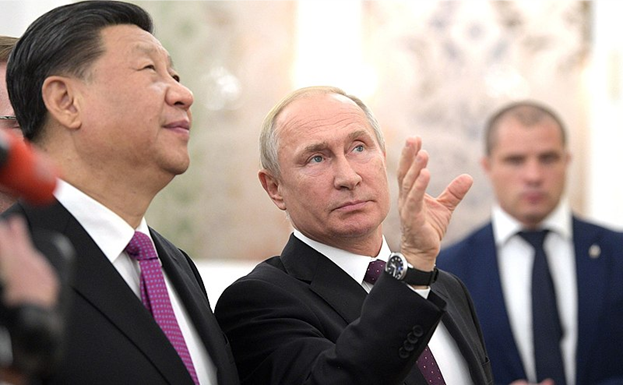
IMPLICATIONS OF RUSSIA’S NUCLEAR SIGNALING DURING THE UKRAINE WAR FOR CHINA’S NUCLEAR POLICY
TONG ZHAO
October 13, 2022
This report is published under a 4.0 International Creative Commons License the terms of which are found here.
This report is simultaneously published by the Asia-Pacific Leadership Network, Nautilus Institute, and the Research Center for Nuclear Weapons Abolition, Nagasaki University (RECNA).
The views expressed in this report do not necessarily reflect the official policy or position of the Nautilus Institute. Readers should note that Nautilus seeks a diversity of views and opinions on significant topics in order to identify common ground.
In this Policy Forum essay, Tong Zhao argues that China fundamentally sees the Ukraine conflict as being caused by hegemonic behavior by the US-led West forcing Russia’s hand. China has been watching and learning from Russia’s implicit use of nuclear threat, and the lessons learned may add further ambiguity and uncertainty to the interpretation and application of China’s No First Nuclear Use policy in potential conflict situations, including those involving Taiwan.
Tong Zhao is a visiting research scholar at Princeton University’s Science and Global Security Program, as well as a senior fellow in the Nuclear Policy Program at the Carnegie Endowment for International Peace. His research focuses on strategic security issues, such as nuclear weapons policy, deterrence, arms control, nonproliferation, missile defense, hypersonic weapons, and China’s security and foreign policy.
This essay is a contribution to the “Reducing the Risk of Nuclear Weapons Use in Northeast Asia” (NU-NEA) project, a collaboration between the Research Center for Nuclear Weapons Abolition, Nagasaki University, Nautilus Institute, and the Asia Pacific Leadership Network for Nuclear non-proliferation and Disarmament, is to reduce and minimize the risk that nuclear weapons will be used in the region by developing better understandings of the processes that could lead to the first use of nuclear weapons and the potential outcomes of such nuclear weapons use. In the first year of this three-year project, the NU-NEA project team identified over 25 plausible nuclear weapons “use cases” that could start in Northeast Asia, sometimes leading to broader conflict beyond the region. These nuclear use cases are described in the report Possible Nuclear Use Cases in Northeast Asia: Implications for Reducing Nuclear Risk. The project has commissioned five contributions to update the cases in light of the Ukraine conflict, of which this essay is the second.
Keywords: United States, Nuclear Strategy, Nuclear Use, Northeast Asia, China, Russia, Ukraine
Authors’ Profile:
Tong Zhao is a Senior Fellow at the Nuclear Policy Program of the Carnegie Endowment for International Peace, based in Beijing at the Carnegie–Tsinghua Center for Global Policy. His research focuses on strategic security issues, including nuclear arms control, nonproliferation, missile defense, space security, strategic stability, and China’s security and foreign policy. Zhao was previously a Stanton Nuclear Security Fellow at the Belfer Center for Science and International Affairs at Harvard University. He also has experience as a nonresident WSD-Handa Fellow at the Pacific Forum CSIS, and working for the Office of Foreign Affairs of the
People’s Government of Beijing Municipality. He holds a PhD in science, technology, and international affairs from the Georgia Institute of Technology, and received a B.S. in physics and an M.A. in international relations from Tsinghua University.

















